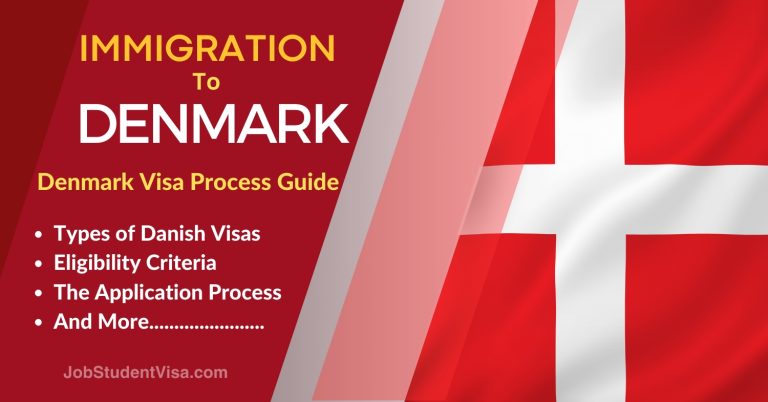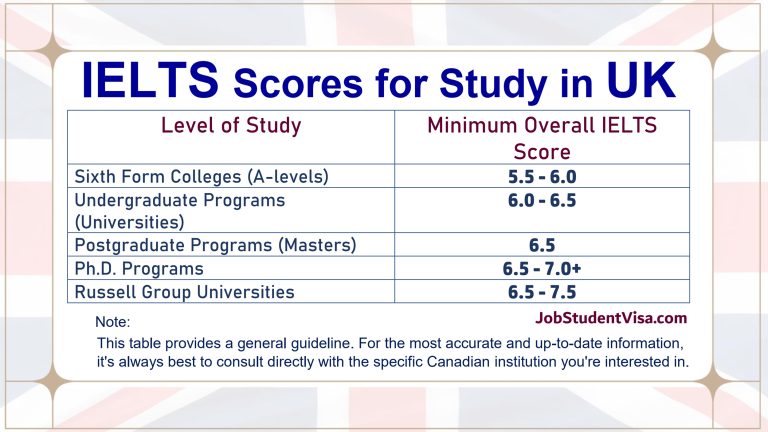IELTS Score Requirements for Study in Denmark
Minimum IELTS Scores for Education in Denmark: A Detailed Exploration
Denmark, with its internationally recognized higher education system, is a sought-after destination for students worldwide. For those whose first language isn’t English, proving proficiency in English is essential. The International English Language Testing System (IELTS) is one of the key tests accepted by Danish educational institutions for this purpose. It assesses English skills in listening, reading, writing, and speaking.
In Denmark, universities set their own IELTS requirements, and these vary based on the level and field of study. Typically, for undergraduate programs, the minimum IELTS score required by universities in Denmark ranges from 6.0 to 6.5. This ensures that students have a proficient level of English for academic studies. For postgraduate programs, such as master’s or doctoral degrees, the requirements are often higher, usually in the range of 6.5 to 7.0, reflecting the advanced nature of these courses and the greater language proficiency needed.
It’s also important to note that specific programs may have different IELTS requirements. For instance, programs in humanities, business, or social sciences might have different score requirements compared to programs in technical or scientific fields. Therefore, it is crucial for prospective students to check the specific IELTS requirements of the university and program they are interested in. This approach ensures that students can meet the language proficiency standards needed for their desired academic pursuits in Denmark.

IELTS for Academic Purpose
IELTS for Higher Education in Denmark
- Undergraduate Programs: For bachelor’s programs, Danish universities generally require a minimum IELTS score of 6.0 to 6.5. This ensures that students have a proficient level of English for academic studies, which often involve complex reading materials and active class participation.
- Program-Specific Requirements: Certain fields of study, such as humanities, law, and business, might demand higher IELTS scores due to the intensive use of language in coursework and discussions.
IELTS for Postgraduate Studies in Denmark
- Master’s Programs: These programs typically ask for a minimum IELTS score of 6.5, acknowledging the need for a higher level of English proficiency for advanced academic work, including research and thesis writing.
- PhD Programs: For doctoral studies, the requirement can vary, but a score around 6.5 to 7.0 is common, especially for programs involving significant research, publications, and presentations in English.
IELTS for Vocational and Technical Education
- Vocational Education and Training (VET): In Denmark, VET programs may require a lower IELTS score, typically around 5.5 to 6.0, as these programs are often more focused on practical skills than academic language proficiency.
English Proficiency in Danish Universities
- Top Universities: Institutions like the University of Copenhagen, Aarhus University, and the Technical University of Denmark often set their IELTS requirements at the higher end (6.5 or above) to maintain high academic standards.
- Specialized Courses: Some specialized courses, especially those at the postgraduate level or courses with a global perspective, might have stricter IELTS requirements.
Factors Influencing IELTS Requirements in Denmark
- Program Competitiveness: Highly competitive programs, such as those in top universities or popular fields of study, often have higher IELTS score requirements.
- Nature of the Program: Courses with a significant emphasis on English (like international business or English literature) generally require higher IELTS scores.
- Institutional Policies: Each educational institution in Denmark sets its own IELTS requirements based on its specific academic standards and expectations.
Certainly! Here’s a table summarizing the minimum IELTS scores typically required for various levels of education in Denmark, including specific requirements for some of the top universities:
| Educational Level | Typical Minimum IELTS Score | Notes / Top Universities Requirements |
|---|---|---|
| Undergraduate Programs (Universities) | 6.0 – 6.5 | Higher for certain fields like humanities, law. |
| Master’s Programs | 6.5 | May be higher for research-intensive programs. |
| PhD Programs | 6.5 – 7.0 | Depends on research focus and program specifics. |
| Vocational Education and Training (VET) | 5.5 – 6.0 | Focused more on practical skills. |
| Top Danish Universities (e.g., University of Copenhagen, Aarhus University) | 6.5 – 7.0 | Depending on course and academic rigor. |
| Specialized/Competitive Programs | 7.0+ | Especially for fields requiring high language proficiency. |
This table provides a general guideline. Actual requirements can vary between different institutions and specific programs. Prospective students are advised to check the exact requirements of the program and university they are interested in. Some programs might also accept other forms of English proficiency proof or have different requirements for EU/EEA students.
Also Read:
IELTS for Student Visa in Denmark
For obtaining a student visa in Denmark, the requirement of an IELTS (International English Language Testing System) score depends on the specific requirements of the university or educational institution you plan to attend. Generally, English proficiency is a key requirement for international students whose first language is not English, especially for courses taught in English.
It is not universally mandatory to have IELTS for a student visa in Denmark. The requirement for IELTS or any other English language proficiency test depends on the specific university and the program you are applying to.
Here’s a more detailed overview:
- University Requirements: Many Danish universities have their own language proficiency requirements. For students whose first language isn’t English, an English proficiency test like IELTS may be required, particularly for courses conducted in English.
- Exemptions Based on Previous Education: If you’ve completed your previous education in an English-speaking country (such as the USA, UK, Canada, Australia, Ireland, or New Zealand), you might be exempt from providing IELTS scores at some Danish universities.
- Alternative Proof of English Proficiency: Besides IELTS, universities may accept other English proficiency tests or evidence. It’s essential to check with the specific university’s international admissions office to understand their requirements.
- Study in Denmark Without IELTS: It is possible to study in Denmark without IELTS. Some universities accept students from English-speaking countries or those who have completed a degree in English. Additionally, you might be able to provide a certificate from your previous institution confirming that your education was in English.
- Visa Requirements: While language proficiency is crucial for university admission, it is not specifically mandated by the Danish student visa regulations. However, obtaining admission to a Danish educational institution, which may require proof of language proficiency, is a fundamental step in acquiring a student visa.
Whether IELTS is mandatory for a student visa in Denmark largely depends on the university and program requirements. It’s recommended to directly consult the university you’re interested in for precise information regarding their language requirements. Additionally, for visa-related queries, referring to the official Danish immigration website or contacting the Danish embassy or consulate would be beneficial.
In Denmark, IELTS scores are a vital component of the application process for international students. Achieving a strong IELTS score is crucial not only for fulfilling admission criteria but also for ensuring that students are well-prepared to succeed in an English-speaking academic environment. This is particularly important for higher education programs and top universities where the level of English proficiency expected is relatively high. Therefore, adequate preparation for the IELTS test is a key step for students aspiring to study in Denmark.






